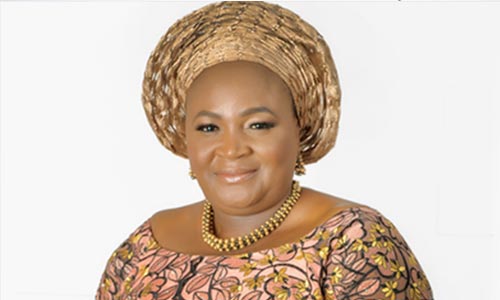SEXUAL HARASSMENT: PASSAGE OF BILL A POIGNANT MOMENT IN THE WOMEN EMPOWERMENT STRUGGLE– DG, NCWD
Oru Leonard
The passage of sexual harassment prevention bill has been described as a “Poignant Moment In The Struggle for Women Empowerment.”
The Director-General,
National Centre for Women Development, (NCWD, Mary Ekpere-Eta (ESQ), stated this in a press release made public at Abuja on Saturday, July 11, 2020.
“The passage of the bill to criminalise sexual harassment of female students in tertiary institutions in Nigeria by the Senate stands as a poignant moment in the push for women empowerment”, she said
Barrister Eta who commended the Senate and the sponsor of the bill, the Deputy President of the Senate, Sen. Ovie Omo-Agege for spearheading this pivotal bill, called on the House of Representatives to pass the bill on time, in order for President Muhammadu Buhari to sign it into law in the nearest future.
“I joined other critical stakeholders at the public hearing on this important law. I am glad that our voices were heard, as we fully supported the bill which will act a legal frame work for protecting female students from unprofessional lecturers who practice and promote the dehumanizing culture of sex-for-grades”, recalled
She noted that Nigerian girls and women face different challenges in their quest for education, lamenting that there are still places in the country where girls are overlooked when poor families are compelled to pick the children who will be sponsored in school.
“We have stories of girls dropping out of school because they or other girls they know were raped in footpaths that lead to their schools. We also have girls who are married off at a young age to save money in their homes. It is girls who are sent out to hawk wares to augment their family’s income, despite the fact that they are exposed to danger”, she added.
She stated that is gratifying that after women, some of whom surmount the above challenges to make it into tertiary institutions, they will no longer have to contend with lecturers who harass them for sex, as a condition for passing their exams.
She also commended the National Assembly on its plan to host a public hearing on Sexual and Gender Based Violence (SGBV) for which it appointed the women’s legislative hero, Sen. Ovie Omo-Agege and another strong supporter of women’s rights, Speaker of the House of Representatives, Hon. Femi Gbajabiamila as co-chairs.
“I believe that at the planned public hearing, issues around Gender Based Violence, rape, sexual abuse and sexual harassment will again be discussed with the goal of developing legislative instruments to curb the spike in sexual assault
“The planned meeting by the gender-friendly leadership of the 9th Assembly will also be a platform to repeat the call for states which have to domesticate other laws that protect women such as the Childs Right Act and the Violence Against Persons Prohibition Act.
“Using the Police Trust Fund as established by a legislation of the 8th Assembly, to equip the Nigerian police with modern facilities and train it’s personnel to scientifically investigate and prosecute rape and sexual assault-this will be one of the issues I look forward to seeking the support of the National Assembly in making a reality” the DG posited.
She expressed gratitude to the 9th Assembly for prioritizing the protection of women’s rights and express the appreciation of Nigerian women, many of whom she said have shared their joy on the unprecedented level of concern and support shown by the National Assembly under the leadership of the Senate President, Dr. Ahmed Lawan and Speaker Femi Gbajabiamila.
The bill against sexual harassment in tertiary institutions passed by the Senate last Tuesday, prohibits the offense of sexual harassment of students in tertiary institutions and criminalizes the act of neglect or failure of administrative heads of tertiary educational institutions to address complaints of sexual harassment within a specified period of time.
She explained that the proposed legislation also creates strict liability offences by removing mutual consent as a defense in the prosecution of sexual harassment cases in tertiary educational institutions and maintains the fiduciary relationship that exists between educators and students.
“The bill stipulates that any person who commits the offences of sexual harassment of students listed under the Bill shall in conviction be sentenced to imprisonment for 14 years or to a fine of five million Naira or both”, She concluded.




